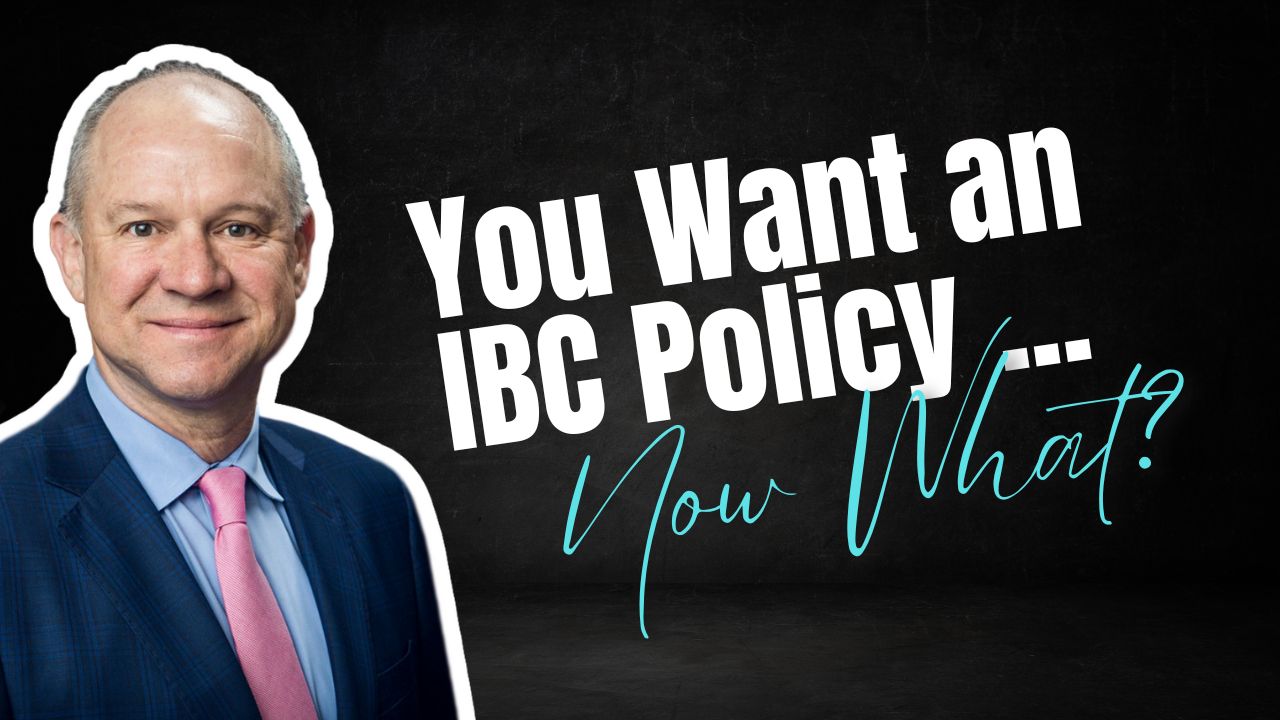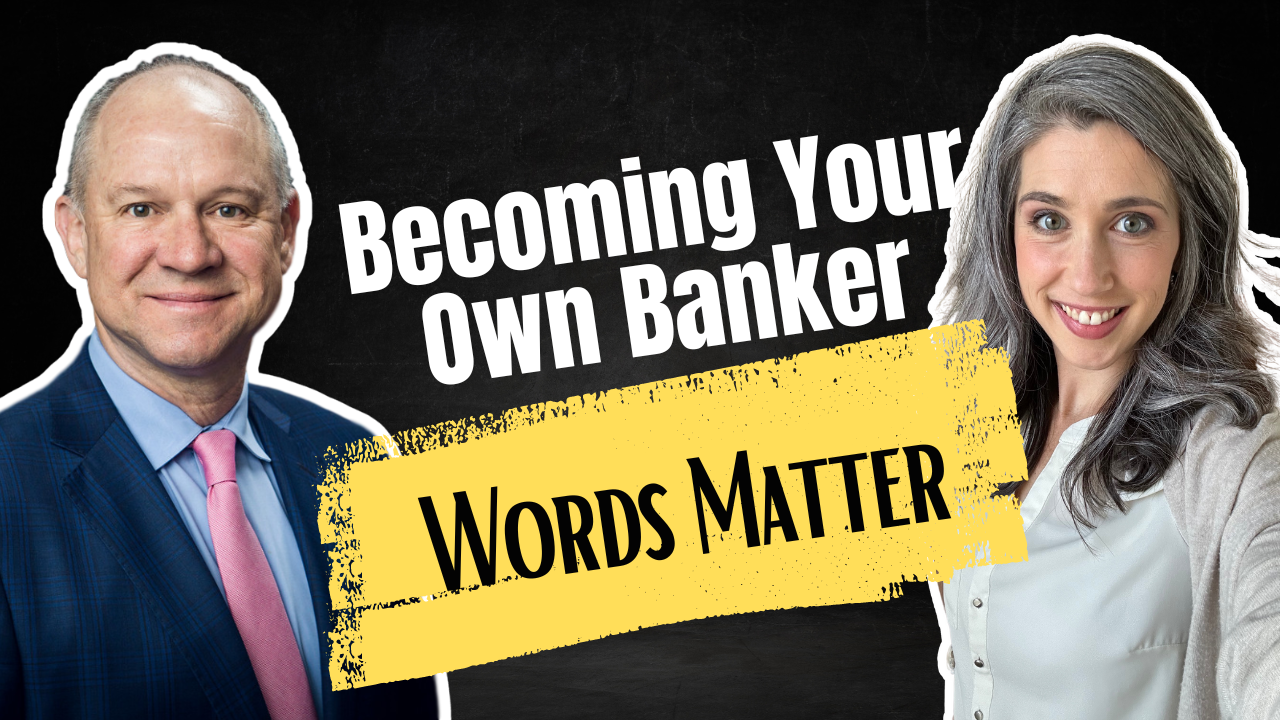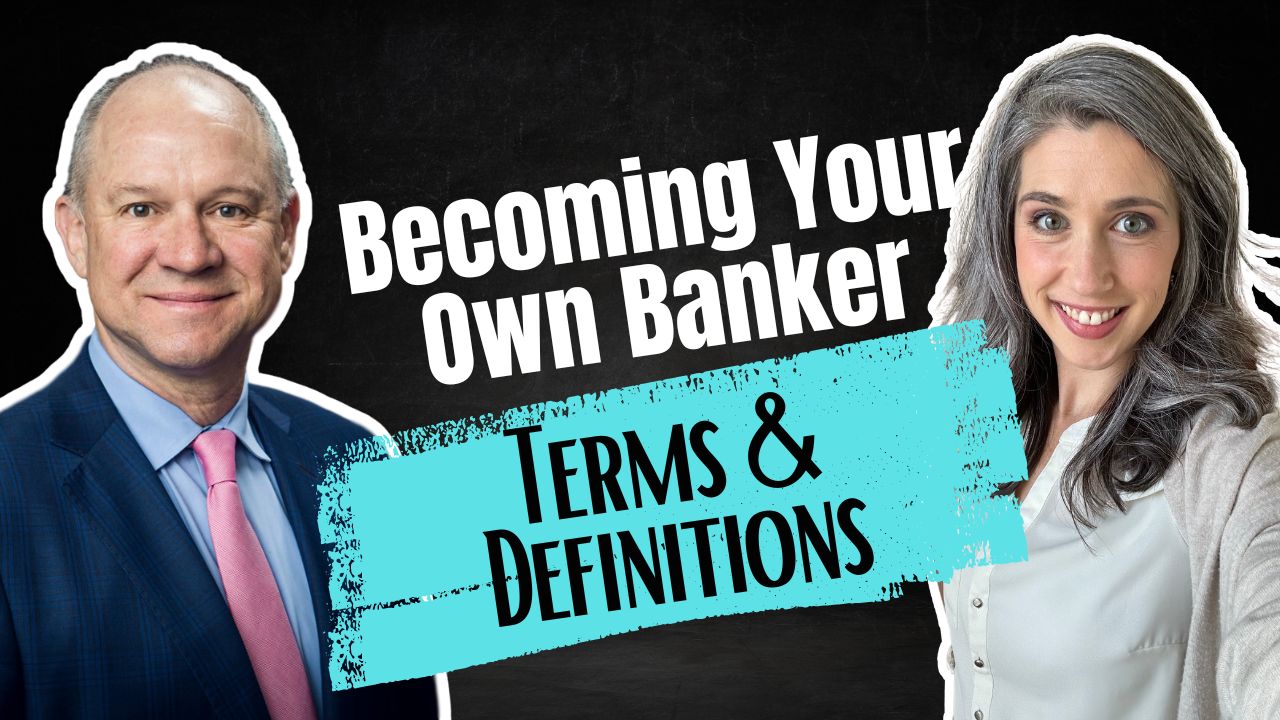
Infinite Banking Concept Policies: IBC Underwriting, Loans, and Future Death Benefits
You’ve decided that you want an Infinite Banking (IBC) policy. You’ve done the research, and you want a better place to store cash that has the benefits of safety, liquidity, and growth on cash storage.
What’s next? What should you expect as you go through the purchase process?
In this episode, we take a deep dive into the Infinite Banking Concept (IBC) and explore the intricacies of illustrations, underwriting, and loans. Join us as we navigate the complexities of IBC and help you make informed decisions about your financial future.
Podcast: Play in new window | Download (Duration: 1:03:12 — 72.3MB)
Subscribe: Apple Podcasts | Spotify | Android | Pandora | RSS | More
Table of Contents
Insurance is a Contract
[4:28] “Contracts are the backbone of any society.”
Nelson Nash said this and furthermore believed that if contracts were breached, that would mean the collapse of society. This is why you can rely on your whole life insurance policy–anything that is in your contract and part of your policy design will remain true for the entire length of your policy.
Even as tax law changes and the IRS modifies what’s possible with a life insurance contract, this only affects future contracts. For example, in 1988 the IRS introduced something called a MEC limit. MEC stands for a modified endowment contract and is what a life insurance policy becomes if it’s over-funded. When you have a MEC, your policy loses all tax advantages.
This happened because people were putting so much money into their insurance and accessing that money tax-free, and the IRS wanted a slice of the action. However, thanks to contract law, MEC limits (the maximum premium you can contribute without turning your policy into a MEC) only applied to new policies. To this day, Bruce has policies from the 80s that were never subject to MEC limits.
This is an incentive to start a policy as soon as possible. You don’t know what the future holds, or how the IRS might modify the rules. You do know that you have a need for capital and a need for insurance. By locking it in today, you have more time to build capital, and you lock in all the current benefits of a life insurance contract. Those benefits cannot and will not be changed once the contract is signed.
Direct Recognition vs. Non-Direct Recognition Life Insurance
If you’re ready to buy a policy, it’s worth considering whether you want to work with a direct recognition or non-direct recognition company. This determines how dividends are applied to your cash value when you have an outstanding loan.
Direct recognition companies “directly recognize” when you have an outstanding loan, and apply the dividend differently to any cash value with a lien on it. Non-direct recognition companies apply the dividend equally across your cash value, even if you have a lien on some of it. While this may make non-direct recognition seem better, there are no deals in the life insurance industry.
In other words, everything is a trade-off. Direct recognition doesn’t automatically mean that cash value with a lien on it will earn less. It really means that it will be applied proportionately to the loan interest rate. And if the interest rate is much higher than the declared dividend, that portion of your cash value may actually earn a bit more. But if you intend to use your cash value often, non-direct recognition may be your best bet.
The important takeaway here is that one is not leagues better than the other. After all, interest rates and dividends are unpredictable. Companies will ebb and flow. So don’t get too hung up on the little things, especially if it holds you back from making a choice. Go with your instinct, and don’t sweat the decision too much. You can always have multiple policies with different constructions.
Your Finances Impact Your Choices
Before you make any choice, it’s crucial that the team you’re working with takes your full financial picture into consideration. There’s no single “best” policy design. While there are some guidelines, your specific policy will depend on what you already have, and what your goals for the future are. This will even change over your lifetime, so as you grow, you may find yourself with a portfolio of very different policies.
[19:36] “A full financial picture means they need to know what your income is in the household. They need to know what your expenses are in the household. They need to know not only what your assets are, but where they’re laying.”
While insurance producers are not legally considered fiduciaries, we believe that this is a fiduciary responsibility your team has to you. Your personal economy matters. It’s going to impact your base premium to PUA ratio, the amount of death benefit you need and how to get it (such as blending term insurance and whole life insurance), whether you’re going to prioritize early cash value or not, and much more.
Other red flags to consider:
- Your agent doesn’t give you a full illustration (if it says there are 19 pages, you should receive 19 pages)
- The person selling you insurance isn’t licensed or at least not in your state. You can ask your agent for their license number to reference
The IBC Underwriting Process
Before you can get approved for a whole life insurance product, you’ve got to go through some underwriting. Underwriting is when an insurance company determines how risky it is to insure you. And since whole life insurance is a permanent product, the insurance companies have to be more thorough. To put it bluntly, they want to ensure that you won’t die tomorrow.
This means the company will look into your current health and health history. Fortunately for you, this happens on the insurance company’s dime, not yours. You’ll complete a questionnaire about your health, as well as your personal life. They want to know if you smoke, if you engage in dangerous behavior (like regular sky-diving), and other habits or facts that may indicate risk. It’s crucial to be honest since it’s all a part of your legally-binding contract.
You’ll also have to get a health exam, at no cost to you. Oftentimes, you can have a nurse come right to your house. Usually, this consists of a blood draw, a urine sample, and a few simple measurements.
While having a dangerous hobby or being a smoker won’t automatically make you ineligible for insurance, you may get a lower rating. Your rating indicates your risk to the company. The better your rating, the more death benefit you can get for the same premium. To put that another way, the better your rating, the lower your premium for a given death benefit. Unfortunately, you may not be eligible for a policy at all if you don’t meet certain health requirements.
Regardless of your rating, this does not impact your ability to conduct an Infinite Banking strategy. It won’t affect your cash value or how that works.
Possible Insurance Rating Classes
If the company determines that you are eligible for whole life insurance, there are several ratings that you can get. As mentioned, this affects how much your premium will be relative to the death benefit that you want.
The possible ratings are:
- Preferred Plus. This is the highest possible rating and is extremely uncommon. People in this class have no negative health history, don’t take medications, have the ideal height/weight ratio, and have a clean family history.
- Preferred. If you have excellent health, but are otherwise within height and weight guidelines, or have an issue that’s easily managed, you may be able to get a preferred rating.
- Standard Plus. This is a rating for people who are in good health but may be slightly outside of the ideal height/weight ratio, or have some minor health issues.
- Standard. This is the lowest eligible rating, and also the most common. About 75% of policyholders get a Standard rating. This may mean you’ve got average health and health history, maybe you take some medications, and your height/weight ratio does not meet the guidelines.
There’s also a smoker/non-smoker designation. Non-smokers get a slightly better premium for their death benefit. Note that marijuana is now treated like tobacco, and gets a smoker rating. They’ll determine this from your fluids, regardless of how you consume the marijuana/tobacco.
Accelerated Underwriting
Accelerated underwriting is an expedited way to get approved for life insurance. If you’re young and in good health based on some information gathered, you can actually forgo the health exam. You’ll get an offer for a policy, and can actually get approved in a 24-hour window.
IBC Death Benefit
Last, but certainly not least, there’s the death benefit to consider. This is also what we call the “face amount” of the policy. This is what you’re purchasing with your premiums. While your death benefit can actually increase over time with PUAs, the face amount you choose is your baseline.
When you die, the death benefit is paid to your heirs. This could be your spouse, your children, your parents, or anyone else you love. You can also change these beneficiaries at any time, by contacting the insurance company. For example, if you get a divorce with no kids, you may choose to take your ex off the list. If you do have kids, maybe you still want to list your ex as a beneficiary, at least until the kids reach adulthood. It all depends on your dynamics, just remember to make changes promptly.
Once you determine beneficiaries, be sure to have conversations with your family about money, money management, and good stewardship. You want your loved ones to be prepared for a windfall, even if it happens 50 years from now.
Choosing the amount of your death benefit all comes back to your personal economy and goals. If your primary objective is insurance, you may choose a much higher death benefit, and add in some term insurance. If your goal is purely about early cash value, you may choose your death benefit based solely on how much premium and PUAs you want to pay. Your agent can help you find the ideal combination.
Book A Strategy Call
Do you want to coordinate your finances so that everything works together to improve your life today, accelerate time and money freedom, and leave the greatest legacy? We can help! Book an Introductory Call with our team today https://themoneyadvantage.com/calendar/, and find out how Privatized Banking, alternative investments, or cash flow strategies can help you accomplish your goals better and faster. That being said, if you want to find out more about how Privatized Banking gives you the most safety, liquidity, and growth… plus boosts your investment returns, and guarantees a legacy, go to https://privatizedbankingsecrets.com/freeguide to learn more.
Becoming Your Own Banker, Part 29: Words Matter
Ever felt like financial jargon was designed to confuse rather than clarify? Join us as we navigate the labyrinth of financial terminology, particularly within the infinite banking sphere. It’s not just about learning by rote; it’s about cementing a rock-solid financial strategy based on clear, precise language. By dissecting common misconceptions, we aim to transform…
Read MoreBecoming Your Own Banker, Part 28: Infinite Banking Definitions
Have you ever felt like you’re on a financial hamster wheel, constantly spinning but never gaining traction? Join us as we unpack the epilogue and glossary of Nelson Nash’s “Becoming Your Own Banker.” It’s a journey through the intricate philosophy of IBC, as we cover Infinite Banking definitions that shows how effective money management can…
Read More


